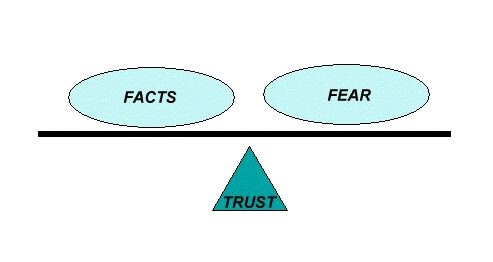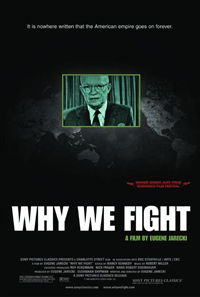Wednesday, February 22, 2006
CRYPTO-FASCISM

 The United Nations was the second multipurpose international organization established in the 20th century that was worldwide in scope and membership. Its predecessor, the League of Nations, was created by the Treaty of Versailles in 1919 and disbanded in 1946 (link)
The United Nations was the second multipurpose international organization established in the 20th century that was worldwide in scope and membership. Its predecessor, the League of Nations, was created by the Treaty of Versailles in 1919 and disbanded in 1946 (link)
retrieved from Wikipedia (link):
Crypto-fascism is when a party or group secretly adheres to the doctrines of fascism while attempting to disguise it as another political movement. The term is in a similar vein to crypto-Judaism or crypto-Christianity, referring to the secret practice of one faith while adhering to another religion publicly.
The term is mainly credited to Gore Vidal. During a television interview during the chaos of the 1968 Democratic National Convention, Vidal described William F. Buckley, Jr. as a "crypto-Nazi" and later corrected himself as meaning to describe him as a "crypto-fascist". The term has been used frequently in Gore Vidal's literature and by others, including Vidal's adherents.
William F. Buckley's famous response to the term was, "Now, listen you queer, stop calling me a crypto-Nazi or I’ll sock you in the goddamn face." This is according to several sources, including Esquire Magazine at the time.
Revival
In America, the term crypto-fascist has been revived by some critics to describe the neoconservative movement, especially in reference to various national security measures taken after the September 11th attacks. Many neoconservatives consider the term offensive, and some have even called it hate speech.
links:
Political Animals: Vidal, Buckley and the ’68 Conventions - Page dedicated to the debate in which the infamous crypto-Nazi statement was made by Gore Vidal. Sound files available.
Retrieved from "http://en.wikipedia.org/wiki/Crypto-fascism"
List of fascists: This is a list of persons who self-identify as Fascists or a variant (e.g., National Socialists,Rexists, Falangists, etc.) and who have made major contributions to this ideology, eitherliterarily, politically or militarily. It is organised by country or region.
Corporatism: Historically, corporatism or corporativism (Italian corporativismo) is a political system in which legislative power is given to civic assemblies that represent economic, industrial, agrarian, and professional groups. Unlike pluralism, in which many groups must compete for control of the state, in corporatism, certain unelected bodies take a critical role in the decision-making process. These corporatist assemblies are not the same as contemporary business corporations or incorporated groups.
The word "corporatism" is derived from the Latin word for body, corpus. This original meaning was not connected with the specific notion of a business corporation, but rather a general reference to anything collected as a body. Its usage reflects medieval European concepts of a whole society in which the various components each play a part in the life of the society, just as the various parts of the body serve specific roles in the life of a body. According to various theorists, corporatism was an attempt to create a "modern" version of feudalism by merging the "corporate" interests with those of the state. (Also see neofeudalism.)
Political scientists may also use the term corporatism to describe a practice whereby anauthoritarian state, through the process of licensing and regulating officially-incorporatedsocial, religious, economic, or popular organizations, effectively co-opts their leadership or circumscribes their ability to challenge state authority by establishing the state as the source of their legitimacy. This usage is particularly common in the area of East Asia studies, and is sometimes also referred to as state corporatism. In Italian Fascism, this non-elected form of state 'officializing' of every interest into the state was professed to better circumvent the marginalization of singular interests as would happen by the unilateral end condition inherent in the democractic voting process. Which would better instead recognize or 'incorporate' every divergent interest as it stands alone into the state "organically", thus being the inspiration behind their use of the term Totalitarian, perceivable to them as not meaning a coercive system but described distinctly as without coercion in the 1932 Doctrine of Fascism as thus; "…(The state) is not simply a mechanism which limits the sphere of the supposed liberties of the individual…" & "…Neither has the Fascist conception of authority anything in common with that of a police ridden State…" but rather clearly connoting "…Far from crushing the individual, the Fascist State multiplies his energies, just as in a regiment a soldier is not diminished but multiplied by the number of his fellow soldiers…"
Contemporary popular usage of the term is more pejorative, emphasizing the role of businesscorporations in government decision-making at the expense of the public. The power of business to affect government legislation through lobbying and other avenues of influence in order to promote their interests is usually seen as detrimental to those of the public. In this respect, corporatism may be characterized as an extreme form of regulatory capture, and is also termed corporatocracy. If there is substantial military-corporate collaboration it is often called militarism or the military-industrial complex.
Some contemporary political scientists and sociologists use the term neo-corporatism to describe a process of bargaining between labor, capital, and government identified as occurring in some small, open economies (particularly in Europe) as a means of distinguishing their observations from popular pejorative usage and to highlight ties to classical theories.

Three Australian soldiers in tin hats, middle man looking through an anti-aircraft gunsight (link)
 The United Nations was the second multipurpose international organization established in the 20th century that was worldwide in scope and membership. Its predecessor, the League of Nations, was created by the Treaty of Versailles in 1919 and disbanded in 1946 (link)
The United Nations was the second multipurpose international organization established in the 20th century that was worldwide in scope and membership. Its predecessor, the League of Nations, was created by the Treaty of Versailles in 1919 and disbanded in 1946 (link)retrieved from Wikipedia (link):
Crypto-fascism is when a party or group secretly adheres to the doctrines of fascism while attempting to disguise it as another political movement. The term is in a similar vein to crypto-Judaism or crypto-Christianity, referring to the secret practice of one faith while adhering to another religion publicly.
The term is mainly credited to Gore Vidal. During a television interview during the chaos of the 1968 Democratic National Convention, Vidal described William F. Buckley, Jr. as a "crypto-Nazi" and later corrected himself as meaning to describe him as a "crypto-fascist". The term has been used frequently in Gore Vidal's literature and by others, including Vidal's adherents.
William F. Buckley's famous response to the term was, "Now, listen you queer, stop calling me a crypto-Nazi or I’ll sock you in the goddamn face." This is according to several sources, including Esquire Magazine at the time.
Revival
In America, the term crypto-fascist has been revived by some critics to describe the neoconservative movement, especially in reference to various national security measures taken after the September 11th attacks. Many neoconservatives consider the term offensive, and some have even called it hate speech.
links:
Political Animals: Vidal, Buckley and the ’68 Conventions - Page dedicated to the debate in which the infamous crypto-Nazi statement was made by Gore Vidal. Sound files available.
Retrieved from "http://en.wikipedia.org/wiki/Crypto-fascism"
List of fascists: This is a list of persons who self-identify as Fascists or a variant (e.g., National Socialists,Rexists, Falangists, etc.) and who have made major contributions to this ideology, eitherliterarily, politically or militarily. It is organised by country or region.
Corporatism: Historically, corporatism or corporativism (Italian corporativismo) is a political system in which legislative power is given to civic assemblies that represent economic, industrial, agrarian, and professional groups. Unlike pluralism, in which many groups must compete for control of the state, in corporatism, certain unelected bodies take a critical role in the decision-making process. These corporatist assemblies are not the same as contemporary business corporations or incorporated groups.
The word "corporatism" is derived from the Latin word for body, corpus. This original meaning was not connected with the specific notion of a business corporation, but rather a general reference to anything collected as a body. Its usage reflects medieval European concepts of a whole society in which the various components each play a part in the life of the society, just as the various parts of the body serve specific roles in the life of a body. According to various theorists, corporatism was an attempt to create a "modern" version of feudalism by merging the "corporate" interests with those of the state. (Also see neofeudalism.)
Political scientists may also use the term corporatism to describe a practice whereby anauthoritarian state, through the process of licensing and regulating officially-incorporatedsocial, religious, economic, or popular organizations, effectively co-opts their leadership or circumscribes their ability to challenge state authority by establishing the state as the source of their legitimacy. This usage is particularly common in the area of East Asia studies, and is sometimes also referred to as state corporatism. In Italian Fascism, this non-elected form of state 'officializing' of every interest into the state was professed to better circumvent the marginalization of singular interests as would happen by the unilateral end condition inherent in the democractic voting process. Which would better instead recognize or 'incorporate' every divergent interest as it stands alone into the state "organically", thus being the inspiration behind their use of the term Totalitarian, perceivable to them as not meaning a coercive system but described distinctly as without coercion in the 1932 Doctrine of Fascism as thus; "…(The state) is not simply a mechanism which limits the sphere of the supposed liberties of the individual…" & "…Neither has the Fascist conception of authority anything in common with that of a police ridden State…" but rather clearly connoting "…Far from crushing the individual, the Fascist State multiplies his energies, just as in a regiment a soldier is not diminished but multiplied by the number of his fellow soldiers…"
Contemporary popular usage of the term is more pejorative, emphasizing the role of businesscorporations in government decision-making at the expense of the public. The power of business to affect government legislation through lobbying and other avenues of influence in order to promote their interests is usually seen as detrimental to those of the public. In this respect, corporatism may be characterized as an extreme form of regulatory capture, and is also termed corporatocracy. If there is substantial military-corporate collaboration it is often called militarism or the military-industrial complex.
Some contemporary political scientists and sociologists use the term neo-corporatism to describe a process of bargaining between labor, capital, and government identified as occurring in some small, open economies (particularly in Europe) as a means of distinguishing their observations from popular pejorative usage and to highlight ties to classical theories.













































